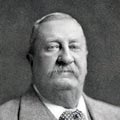The City of the Kings, Part 3
Lima has always been noted, and justly so, for her beautiful women. They are very partial to oranges, which are known to have a beneficial effect on the complexion. I brought this fact to the notice of a lovely Englishwoman, and was rather tickled to note when I lunched with her on several subsequent occasions, that she invariably finished up with a couple of oranges. This charming lady had a most delightful complexion, which she retained till the day of her death. Whether she owed it all to the diet of oranges, I do not know. The fact remains that the ladies of Lima swear by this delicious fruit, and their facial beauty is remarkable.
To an Englishman there are few more interesting objects than the Dog Market. Many Chinese—chiefly small shopkeepers—have made Lima their home. As is well known, they are very partial to dog-meat. Some of these people have determined never to return to their native land, and they can be easily recognized by their cropped hair. For a Chinaman would never dream of going back to China minus his pigtail. There is a hairless dog, about the size of a poodle, and coloured blue-grey, or slate, which is not allowed to touch meat or bones. Chinamen love the flesh of this little animal. It is fed on yams, sweet potatoes, milk, boiled plantains, etc. Plantains, a species of banana, are treated by the natives of all tropical countries as vegetables, and not as fruit. Boiled with rice, or stewed with mutton, they are very appetising. Fried with butter they are not to be despised. I visited the Dog Market with my old friend, McNeil, Permanent Secretary of the American Legation, and saw quite a lot of little carcasses hanging up, looking for all the world like tiny porkers. They were scraped white like pork. Some birds were also on show, but no other kind of meat. The market where pork, beef, mutton, etc., are sold, is some distance from the Dog Market.
The Peruvian authorities are very particular, and rule these markets very strictly. Many of our colonies might take a tip from them—Trinidad and the West Indies, for instance. All meat exposed for sale, whether in the markets, or in the butchers’ shops, must be hung in rooms lined with marble slabs, to keep everything cool. To ensure an ample supply of fresh air, one side is quite open, but screened off with wire mosquito netting.
Every morning at 7 a.m., Don Pablo, the official Chief Veterinary Surgeon, used to go the round of the markets and shops. I sometimes accompanied him, when my horses were not doing fast work. Don Pablo examined every joint and carcass thoroughly. If he noticed any detriment, such as congealed blood, or a bruise, the whole portion of meat was condemned. “Give it to my soldiers,” he used to say, referring to the scavenger vultures, highly valued, and rightly so, by the authorities, because they keep the beautiful city of Lima free from disease, by clearing away all the garbage and rubbish. For Lima, although bang in the Tropics—she is, in fact, on the 10 line—is acknowledged to be one of the most healthy tropical cities in the whole wide world. And so she has been ever since Manco Capac’s time.
The vultures are very tame and plump. Often, when I have been out riding with my racers, a couple would spring up from the ground, seeming to come almost from under the horses’ feet. They appeared to know they were perfectly safe. No one ever dreams of killing them, for the simple reason that they are protected by the wise Government of Peru. In this matter especially the Peruvian statesmen are shrewd, far-seeing men; for they have decreed that a fine of 10 sols shall be imposed on any man, woman, or child, who wilfully kills one of the scavenger birds. As a natural consequence they are a familiar sight in and around Lima, sitting about upon the housetops, or hovering over the place where the condemned meat is thrown.
The Fish Market is regulated in the same thorough manner. No fish is allowed to be taken in after 9.30 a.m., and none sold after 3 p.m. All fish then left on hand is deposited on the dump-heap. Hence one can always depend on getting nothing but what is fresh and healthy. There is no such thing as fish being caught and put on ice, and held over till the next day, as often occurs elsewhere in the Tropics.
Neither does the Government permit traders to take advantage of the poor. A Market Master regulates the price of everything; he allows the salesmen and butchers to sell at a living profit, and no more.
Bubonic plague is one of the terrors of the Tropics. The enlightened Government of Peru fights it in a most intelligent manner. It is caused by filth, and is conveyed from place to place by fleas that live on sewer rats. It stands to reason that if you can get rid of the rats, you’ll check bubonic. To cope with any disease one must first eliminate the cause. In large cities, at least, the Peruvian laws of sanitation are very strict; and their method of dealing with the rat menace is excellent. For every female rat they offer 2½ cents (gold), and for each buck rat, 5 cents. In this way bubonic is kept at arm’s length. Other South American Governments have adopted these measures with good results. They were certainly in vogue at Buenos Ayres when I was there.
